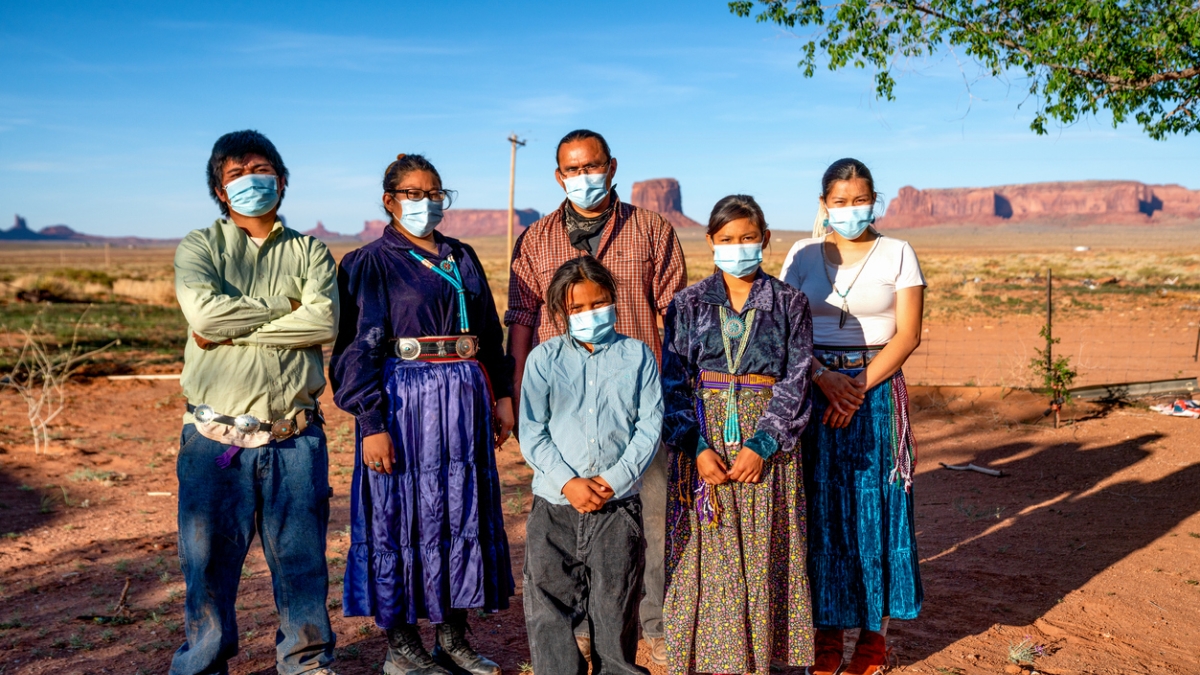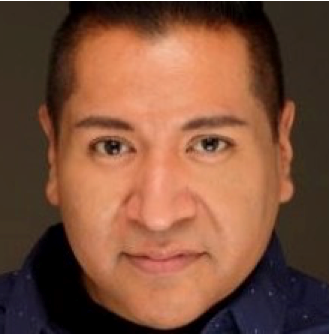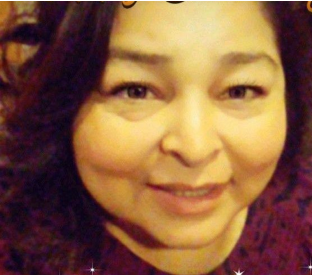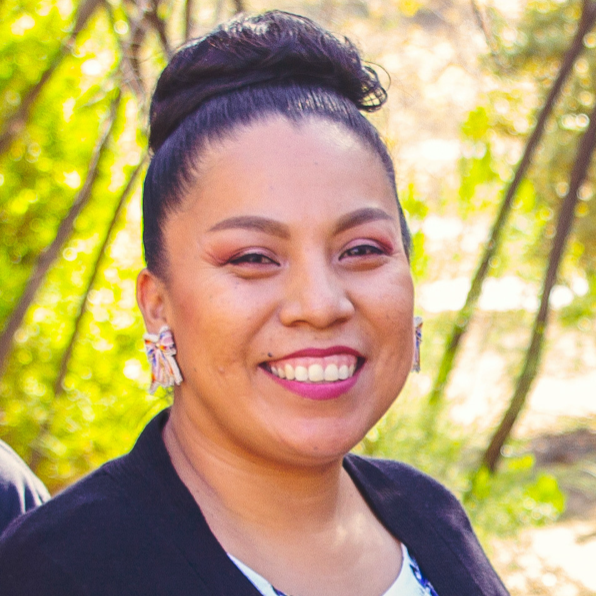Social work faculty, student reflect on Native American resiliency during pandemic

A Navajo family outside their home in Arizona's Monument Valley. iStock photo by Grandriver
Native peoples are tackling the COVID-19 pandemic — as well as many other challenges they face — by relying on their strengths and resiliency, say two faculty members and a graduate student at Arizona State University's School of Social Work who are tribal members.
Assistant Professor Matt Ignacio is a member of the Tohono O’odham Nation of southern Arizona. Graduate student Socorra Arroyo is a member of the Fort McDowell Yavapai Nation near Fountain Hills. Tahnee Baker, lecturer, baccalaureate program coordinator and School of Social Work alumna, is San Carlos Apache, Yavapai-Apache and Navajo. They both shared their thoughts about the work they do in tribal communities and ways social workers can deepen their support of the strengths of Native peoples.
The trio offered their reflections during a time when diverse cultures, traditions and histories of America’s Indigenous peoples are in the spotlight each fall, particularly during November's Native American Heritage Month. Also known as American Indian and Alaska Native Heritage Month, its 2021 theme was “Resilient and Enduring.”
Matt Ignacio, School of Social Work assistant professor
Question: Tell us a little about your current teaching and research.
Answer: S-ke:g Tas!Means "good day" in the Oʼodham language. Currently, I am teaching two graduate sections of a class called "Diversity and Oppression in a Social Work Context" on the ASU School of Social Work Tucson campus. Next semester, the Tucson campus is launching a brand-new sync course on borderlands issues, centering on migration, tribal sovereignty and social work practice, that will be co-instructed by Professor Michael Shafer and myself. A Southwest Interdisciplinary Research Center research project I participate in is a National Institutes of Health-funded study addressing COVID-19 vaccine participation and reducing medical mistrust among Arizona’s Indigenous, Black and LatinxLatinx is a gender-neutral term for Latino/a that is preferred by some individuals and groups. communities.

Matt Ignacio
Q: Particularly during the pandemic, what makes you most hopeful about the resiliency of tribal communities?
A: One of the main findings from our COVID-19 study among Indigenous participants was the deep love, connection and desire to protect their respective communities. In other words, many participants stated they wanted to get the vaccine to protect themselves from severe illness, but also to protect their neighbors and family members, specifically elders, including those back home on their reservation. These beliefs highlight aspects of Indigenous resiliency, which is the ability to step up and do for others. Many participants acknowledged initial distrust towards the COVID-19 vaccines stemming from historical traumas, but those same individuals also felt a tremendous sense of relief after getting vaccinated knowing they could more safely interact with family again.
Q: In what ways can the social work profession deepen its support of the strengths and resilience of Native American people?
A: I encourage others to learn about national grassroots, community-based Indigenous health and social justice movements currently taking place — for example, decolonizing research data out of the Urban Indian Health Institute. On a direct practice level, actively work to develop a foundation of trust with all clients, but especially for Indigenous clients. One way to accomplish this is to operate from a place of humility in an effort to engage Indigenous clients into care.
Socorra Arroyo, Master of Social Work student

Socorra Arroyo
Question:Tell us a little about your current practice role.
Answer: I am a master’s degree student social worker interning at Wassaja Family Services on the Fort McDowell Yavapai Reservation. Interning on my reservation has provided the social work skills needed to work in the tribal child welfare system. This agency has provided a firsthand look at how the tribal court oversees child welfare cases on the reservation.
Q: Particularly during the pandemic, what makes you most hopeful about the resiliency of tribal communities? Or can you share examples of efforts, individuals or communities supporting the resiliency of Native Americans?
A: What makes me the most hopeful about my tribe’s resiliency is the strength of the people. My community has come together many times in history to pull together and voice its position on political matters. In 1976, the tribe stopped the building of Orme Dam. In 1992, the people of Fort McDowell stopped the FBI raids of our casino. Presently, we are coming together to combat the coronavirus.
During the pandemic, the tribe has provided opportunities to tribal members and community members to ensure they have access to frequent COVID testing and vaccinations. The community has stayed connected with the use of virtual platforms to communicate updates and manage tribal affairs. My community continues to be resilient and enduring from natural and manufactured threats. We will continue to stay vigilant in our efforts to preserve our land, water rights and enterprises for future generations.
Q: In what ways can the social work profession deepen its support of the strengths and resilience of Native American people?
A: The social work profession deepens its support of the strengths and resilience of Native American people by ways of using evidence-based practices to work with Indigenous populations. Today social workers are using trauma-informed approaches to work with Native Americans in the child welfare system to address historical and generational trauma caused by the boarding schools and removal of Indian children.
Social workers are protecting Indian Child Welfare Act laws when dealing with Native American children placed in the foster care system to preserve their culture.
Tahnee Baker, School of Social Work lecturer, baccalaureate program coordinator, MSW alumna

Tahnee Baker
Question: Tell us a little about your current teaching and research.
Answer: My name is Tahnee Baker, and I am San Carlos Apache, Yavapai-Apache and Navajo. I am a proud Sun Devil for life as I obtained a bachelor’s degree in justice and social inquiry in 2006, a master’s degree in social work in 2010 and a PhD degree in social work in 2018.
Following graduate school, I worked as a social worker with the Yavapai-Apache Nation for two years. I was very proud and honored to work with my own people during this time and to honor the legacy of my late grandfather, David Sine, a well-respected elder within the community. I worked with children, elders and families with case management, child-protective services investigations and Indian Child Welfare Act cases. Working with my community during this time sparked my interest in helping my people in a different way.
I applied for and was accepted into the ASU School of Social Work doctoral program and continued my journey as a student once again. My dissertation research explored alternative and resilient responses to historical trauma among college graduates from the Yavapai-Apache Nation. My research incorporated Indigenous research methodologies to give back and honor where I come from and who I am. The use of Indigenous-driven research methodologies is one step towards the reclamation of cultural and traditional well-being.
After I received my PhD, I continued my teaching journey as a faculty associate with the ASU School of Social Work and as adjunct faculty with the San Carlos Apache College. In 2019, I was hired as full-time lecturer with the ASU School of Social Work, and in 2021, I took on the role of baccalaureate program coordinator. I love working alongside our amazing undergraduate students and guiding them through their journeys. I especially enjoy teaching my students about the strengths and resilience of our tribal communities in Arizona and the Southwest.
Q: Particularly during the pandemic, what makes you most hopeful about the resiliency of tribal communities? Or can you share examples of efforts, individuals or communities supporting the resiliency of Native Americans?
A: While the COVID pandemic presented many obstacles and changed the way we live our lives, it had unique impacts for tribal communities. The pandemic highlighted the health disparities in tribal communities as well as ongoing issues such as poverty, access to quality health care and geographic isolation.
Despite the adversity faced, tribal communities continued to endure and survive, just as we have for generations. Tribal community leaders became creative in protecting the people. Many communities enacted stay-at-home guidelines and provided spaces for individuals to quarantine away from their families to curb the spread. Culturally tailored public service announcements were created in tribal languages. Once the vaccine rolled out to the public, tribal communities set up plans to administer the vaccine to elders, who are the knowledge keepers, first, to preserve the language, traditions, songs and ceremonies. Many of our social gatherings pivoted to social media, again, to stay connected to our identities and to each other. Resources on how to stay safe continue to be shared among communities across the country.
I am especially proud of how we continue to support each other and how the power of tradition provides strength to our communities during difficult times, just as we always have in the past and will, moving forward to the future.
To learn more about Native American Heritage Month, listen to the AZ Watts Influencers Podcast, hosted by School of Social Work graduate Turquoise Devereaux. Devereaux is a member of the Salish and Blackfeet tribes who was raised on the Flathead Indian Reservation in western Montana.
Written by Morgan Carden, student journalist, ASU School of Social Work.
More Health and medicine

New initiative aims to make nursing degrees more accessible
Isabella Koklys is graduating in December, so she won’t be one of the students using the Edson College of Nursing and Health…

Reducing waste in medical settings
Health care saves lives, but at what cost? Current health care practices might be creating a large carbon footprint,…

ASU offers bilingual counseling to Spanish speakers
Arizona is one of the five states in the nation with the highest percentage of Hispanic residents, according to the U.S.…

